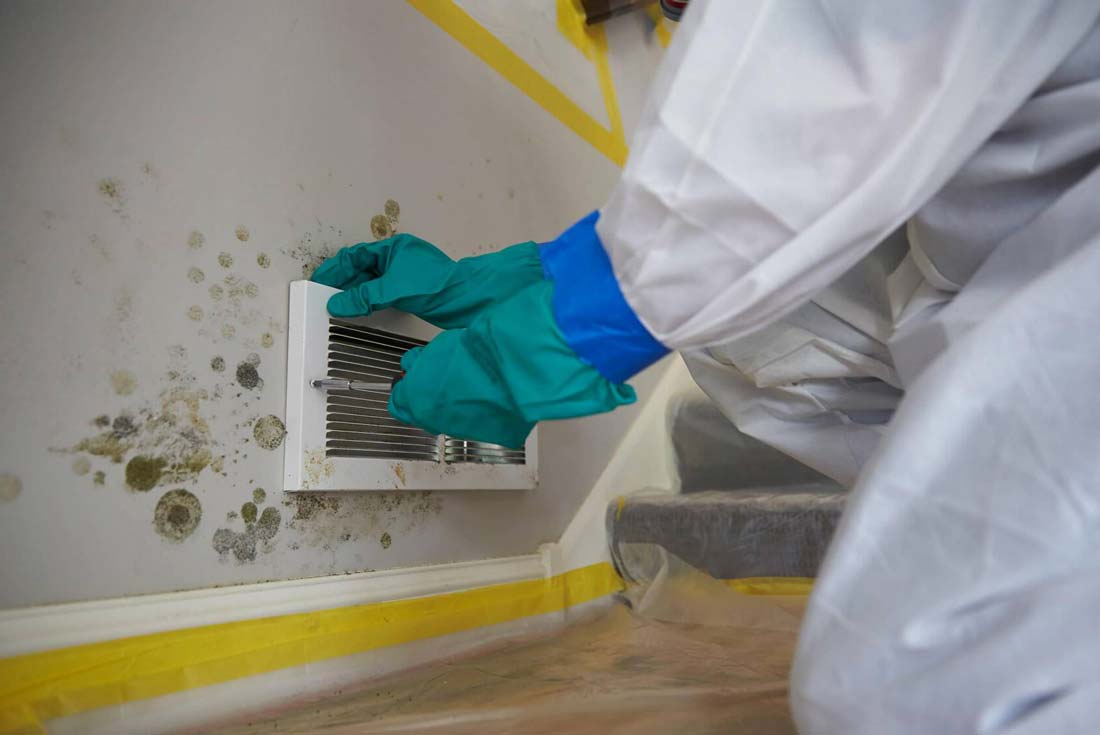Who is accountable for mold remediation in a rental property in Vermont?
There are no laws in Vermont that require landlords to remediate mold. However, the landlord’s responsibility is to maintain the rental premises clean and habitable.
Since there are no laws to force the landlord to clean up the mold, Vermont tenants must play their part to prevent its occurrence. They must use provided ventilation and notify their landlord early when there are structural problems likely to cause mold.

What we cover
ToggleLandlord rights and responsibilities in Vermont
- Keep the property safe and habitable.
- Make all repairs for problems reported within a reasonable time.
- Keep all electrical and plumbing appliances in good working condition.
- Meet all required local housing regulations.
- Lawful evictions.
- Collect rent in agreed-upon amounts and time.
- Supply heat and both hot and cold water.
- Collect a security deposit and use a portion of it for repairs at the end of the lease.
Tenant rights and responsibilities in Vermont
- To live in habitable conditions.
- Timely repair for all problems you report.
- Fix all damage that is your fault.
- Pay the required amount of rent at the agreed time.
- Use provided garbage disposal receptacles.
- Ensure quiet enjoyment of the property for other neighbors.
- No retaliation from the landlord for exercising legal rights.
- Keep the premises clean and habitable.
How long does a Vermont landlord have to fix mold problems?
In Vermont, landlords have 30 days upon receiving notice of the presence of mold to have it repaired.
Tenants are required to allow their landlords reasonable time to fix reported problems.
If a landlord does not fix mold problems, you can break your lease if you are not the cause. However, you must notify your landlord that you will vacate the premises.
Resource: See other states mold laws here
Mold disclosure law in Vermont
You can sell a house with mold legally in Vermont. However, you need to disclose in official documents its presence.
Federal law requires disclosure of lead paint presence in houses built before 1978.
There are no laws forcing landlords and sellers to disclose material defects in their homes. However, making the disclosures ensures that the relationship between you and your client is transparent.
Disclosures also ensure that the tenant or buyer will not sue you when they discover problems that you did not disclose.
Can you break your rental lease in Vermont due to mold?
In Vermont and many states, tenants are legally not allowed to break the rental lease if they are the cause of the mold.
When tenants notice problems that can cause mold, they should report them to the landlord immediately.
Leaking pipes, taps, floods, and spills are causes of mold in the house. Report these to your landlord before they cause more problems in your unit.
Document the problems in photos and inform your landlord in writing. Also, record all the discussions and promises that the landlord offers.
It is the landlord’s responsibility to ensure that their properties are in habitable condition.
If the landlord refuses to fix the reported problems and the unit is not habitable, you can consider it constructive eviction. You can break your lease when the Vermont rental violates the lawful health standards set.
Can a Vermont tenant withhold rent due to mold?
Vermont tenants can withhold rent to compel the landlord to fix some damage in the unit that can cause health problems such as mold.
Tenants can also pay for the repairs and deduct the cost from the rent. You are only allowed to deduct up to half of the rent.
Before you take these drastic decisions, you must issue your landlord notice that you will be vacating their home due to mold which is a health hazard.
Can a Vermont tenant seek justice in court due to mold?
In Utah, a tenant can sue the landlord for mold when;
- You have evidence the landlord refused to fix water leaks reported before the mold appeared.
- If you have spent money in a hospital or on medication due to mold exposure.
- Lost income due to a condition caused by mold exposure.
- If you have spent any money to remediate the mold.
- For mold-related damage to your property not covered by your renters’ insurance.
- For pain and suffering caused by the health effects of mold.
- The mold presence is not your fault.













